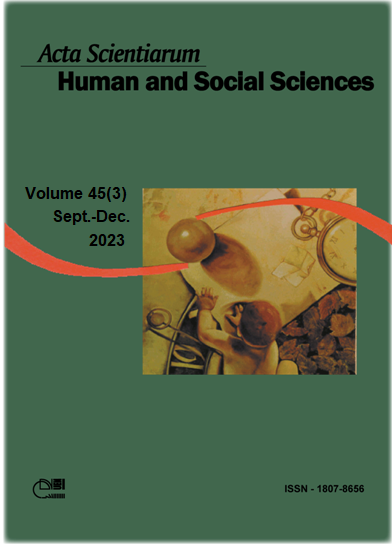Aprendizagem e epistemologia do sensível: um olhar para a Umbanda
Resumen
O estudo analisa os processos de aprendizagem na Umbanda, destacando a 'epistemologia do sensível'. Partindo da visão de aprendizagem como mudança contínua, o foco é identificar conhecimentos produzidos nesse universo não estritamente racional. A Umbanda é vista como espaço de formação de conhecimento, desafiando a 'epistemologia do desprezível', que silencia conhecimentos ancestrais em favor de outros considerados mais valiosos. A abordagem adotada busca uma compreensão menos mecanicista da aprendizagem, promovendo uma construção mais humanizada do conhecimento. A proposta inclui um diálogo entre educação e etnopsicologia para ampliar perspectivas no ensino formal, defendendo a valorização dos conhecimentos tradicionais e a superação de preconceitos. A pesquisa foi conduzida com adeptos da Umbanda no Rio de Janeiro, convidados a revisitar seus processos de construção de conhecimento. A perspectiva valoriza a dimensão sensível da aprendizagem, destacando a importância da experiência e do sentido na educação. A metodologia envolveu a produção de cartas pelos participantes, poderosos instrumentos para criar narrativas biográficas ricas em conhecimento. Ao analisar essas cartas, observaram-se indícios de processos de aprendizagem alinhados à epistemologia do sensível. Essas evidências sugerem que uma abordagem etnopsicológica dos processos de aprendizagem pode enriquecer a compreensão em ambientes formais de educação, contribuindo para uma ampliação epistemológica e metodológica.
Descargas
DECLARAÇÃO DE ORIGINALIDADE E DIREITOS AUTORAIS
Declaro que o presente artigo é original, não tendo sido submetido à publicação em qualquer outro periódico nacional ou internacional, quer seja em parte ou em sua totalidade.
Os direitos autorais pertencem exclusivamente aos autores. Os direitos de licenciamento utilizados pelo periódico é a licença Creative Commons Attribution 4.0 (CC BY 4.0): são permitidos o acompartilhamento (cópia e distribuição do material em qualqer meio ou formato) e adaptação (remix, transformação e criação de material a partir do conteúdo assim licenciado para quaisquer fins, inclusive comerciais.
Recomenda-se a leitura desse link para maiores informações sobre o tema: fornecimento de créditos e referências de forma correta, entre outros detalhes cruciais para uso adequado do material licenciado.


























